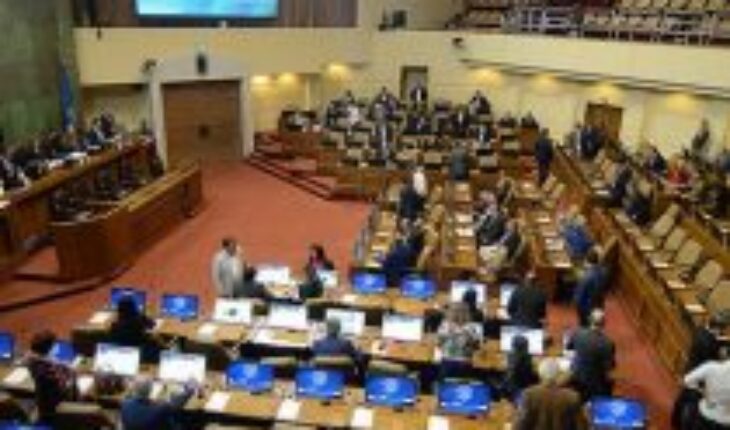On September 5 we will have a new political scenario. If the Approval wins, regardless of personal tastes, we will have certainty in the new rules of the game, and politics will be able to develop in all its breadth. If the Rejection wins, the rules will be those of the old Constitution of the 80s, and politics will have to demand itself to the maximum, to see how we continue.
In the first case, we will have certainties. In the second, uncertainty.
The first uncertainty will be to resolve – interpret – what is the scope of article 142, final paragraph, of the current Constitution. This article is within the permanent norms, under the heading “On the procedure for elaborating a New Constitution” in chapter XV; that is, within the rules that, according to the final paragraph of the aforementioned article, remain in force, to win the Rejection.
This is the first problem that politics will have to solve; but it is clear that, beyond any possible interpretation, the meaning of the aforementioned heading was to establish, as a permanent rule, a “procedure for elaborating a new Constitution”. In other words, the procedure is already in place. But, as that procedure has already been carried out and exhausted, in this hypothetical scenario of Rejection, the question is what remains in force in the repetition of that procedure, and how this second constituent opportunity materializes.
Those that were exhausted, it seems obvious, are the contingent rules – such as dates and deadlines – but those that remain are those that confer legitimacy to the process that regulates the epigraph, such as the pronouncement of the plebiscite of entry, by virtue of which a Convention was chosen, fully elected as the body that must elaborate the new Fundamental Charter. Its composition, on the other hand, is also in the transitional norms – which are part of the Constitution – and are also part of the principle of legitimacy: gender parity, reserved seats and the participation of independents and the disabled.
Here several alternatives are opened that are feasible from the legal point of view, but that must be processed and weighed politically by the different actors, both the Government, the opposition and the rest, who are in different positions.
A first possibility – by way of enunciation, not priorities – is that sectors of Parliament “think of” presenting partial reforms to the Constitution – under the protection of the new quorum of the 4/7, established by Law 21,481 of August 23, 2022, which modified article 127 – and go down that road, thus bypassing “the procedure to elaborate a new Constitution”. The modification and subsequent approval of that quorum of the 4/7 was presented by its authors as a way to facilitate the agreements, in case the Rejection won; I was alone opposed to this project because I considered that it was a covert strategy in favor of Rejection, but, in addition, because put in that scenario, the only sector that can currently gather that quorum of the 4/7 is the right and its current allies, not needing the sectors of Approve Dignity or Democratic Socialism.
In other words, that quorum may be a temptation for the right and its allies who, bypassing to the left, will have the necessary votes in the Senate – they have them – and in the current Chamber of Deputies – surely they will also have them – to make partial reforms, presenting them to public opinion as fair, necessary and that fulfill the objective of reforming the Constitution. The problem that these partial reforms would have is whether they eventually manage to have legitimacy in the face of public opinion, instead of being seen as a cupular maneuver not only to evade popular sovereignty; and the worst scenario would be, in addition, that the content of the same was rejected.
The same danger could occur if the path of using partial reforms were agreed by all the political actors of the Government and Parliament; unless they were of such an entity that public opinion accepted them as sufficient in their content, a question, in my opinion, not easy to dispatch.
Another alternative is to accept the Convention as the valid body for drafting the new Constitution, at its second chance; and that in this instance sectors of the right, either itself and its allies, or with the concurrence of the center-left, want to alter its composition, either in all, or in some of its components – probably the reserved seats and the participation of the independents. Clearly towhere we would have a questioning of legitimacy, on the part of the affected sectors, with political effects that would affect the whole process; also leaving an open door to social protest, with dimensions difficult to foresee.
A third alternative is to start a new process from scratch, where the right and its allies, or with the concurrence of all or part of the center-left, try to revive the alternatives to the Convention – such as the current Congress, a group of experts, or some mixed formula; and, of course, a new composition, if any of the cases take place.
In short, the triumph of the Rejection will mean a scenario of legal and political uncertainty, where the right not only recovers its veto power, but now does so with the plus that it also recovers the initiative, since, with the reduction of the quorum to 4/7, it is the only sector, plus its allies, that can change not only the rules of the game of the constitutional procedure, but the content itself on its own, without needing the votes of the center-left. Will the right and its allies use this path? It’s an unanswered question. Pure uncertainty.
The political actors of the government, and of the opposition, must understand that the political and social process that the country began to live from the same October 18, 2019, in case of triumph of the Rejection, will be open; without closing the wounds that occurred there; without responding to the expectations, demands and hopes that were generated and, therefore, with a scenario of uncertainties about what will be the response of the various actors that triggered one of the most intense and serious social conflicts that the country has had.
As has been heard and read, some actors, side by side, have set their sights on changing the rules regarding independents and reserved seats. I believe that this would not only be a serious political error, but would show that the parties have not drawn the lessons of the process that was brewing, slowly and underground, until emerging with violence on October 18 and that has, as one of its causes, the total discredit of Congress and the system of representation. Will this sector have regained its prestige, as if to convince public opinion that they are now trustworthy, and that with a cupular agreement between four walls they can leave out the independents, or place obstacles and / or demands of such a nature that in fact their participation is annulled or minimized? All this would be done, moreover, without understanding that one of the reasons for the success of the independents was not only their electoral mechanism, but a vote of punishment of the people to the discredited political parties.
With regard to reserved seats, it has also been heard and read that some, side by side, are advocating the idea of leaving them out of the process, or of electing them according to the number of voters who turn out to vote. This approach is of dubious constitutionality – in accordance with the norms of the old Constitution, regarding the principle of equality – why would this rule be applied to this sector, while the political parties would choose their candidates regardless of the votes cast?
These sectors forget, and/or ignore, the nature of the conflict that the State has in the south of the country, where different strategies are played in the Mapuche world, between political violence and institutional means; pushing the latter, in case of leaving them out or reducing their participation, to lose the little credibility they still have in the value of the political rules of democracy, with which that conflict is enhanced. Everything, due to the lack of vision of the State of the sectors that advocate these alternatives.
The right, and the big businessmen, have an enormous responsibility in this scenario, not only for the uncertainty that would be generated with the triumph of the Rejection, but for having contributed to the financing of the campaign, and to the discredit and lies that have been installed regarding the proposed constitutional text. They have done so without giving their face in what they represent, using with a Moorish hand other sectors, off the hook of the center-left that lent themselves, naively or sibilinally, to do the dirty work. Now, they would have a new opportunity to understand that a democratic and social State based on the rule of law, which reflects our sociological reality and with decentralization of power, is not at all opposed to the fundamental pillars of a healthy coexistence, in democracy and with a social and ecological market economy.
If the Rejection wins, we will have a scenario of uncertainties in the rules of the game, and in the way the political, business and social world will move its cards and mobilize. Nothing will be easy.
But if the AP winsI pray we will have certainties in the rules of the game. It will be up to politics to implement them, and the President of the Republic will have a fundamental role to lead this process, whose north must be that such rules of the game acquire full legitimacy and guide us, as a country, for many years, to build a democratic society with justice and dignity for all.
Follow us on





